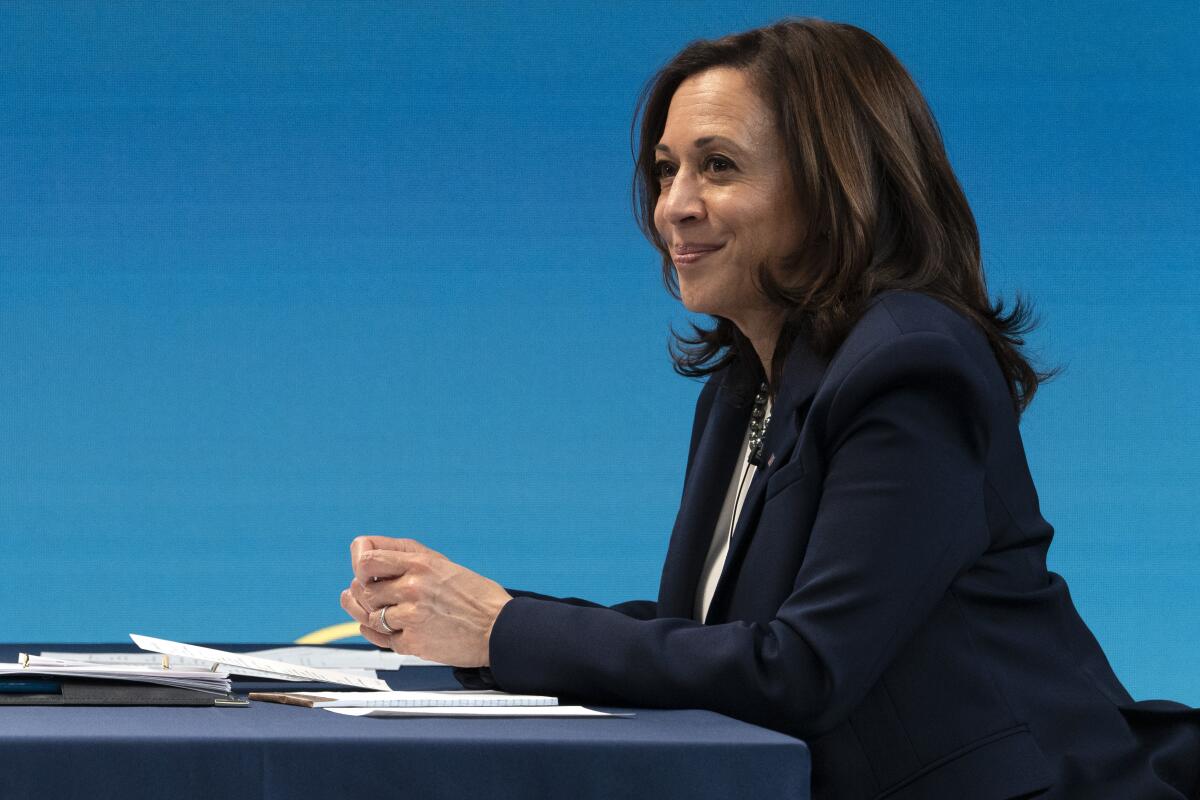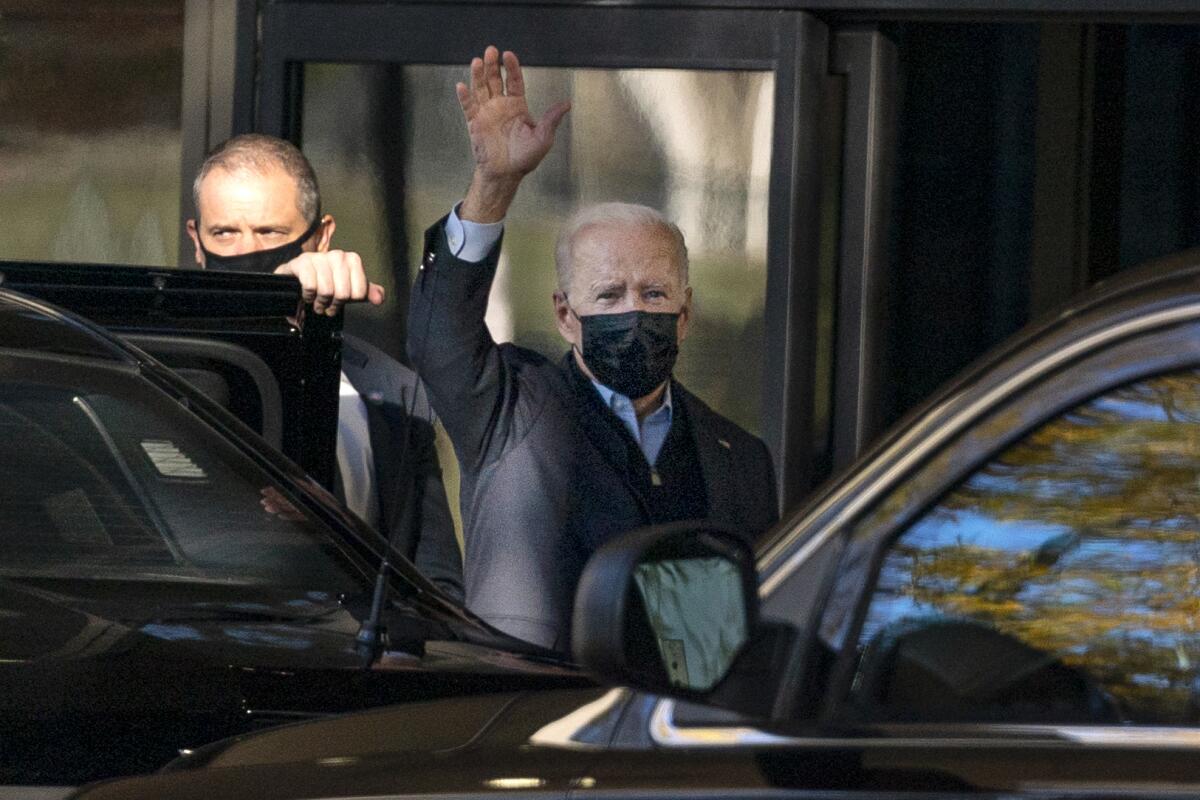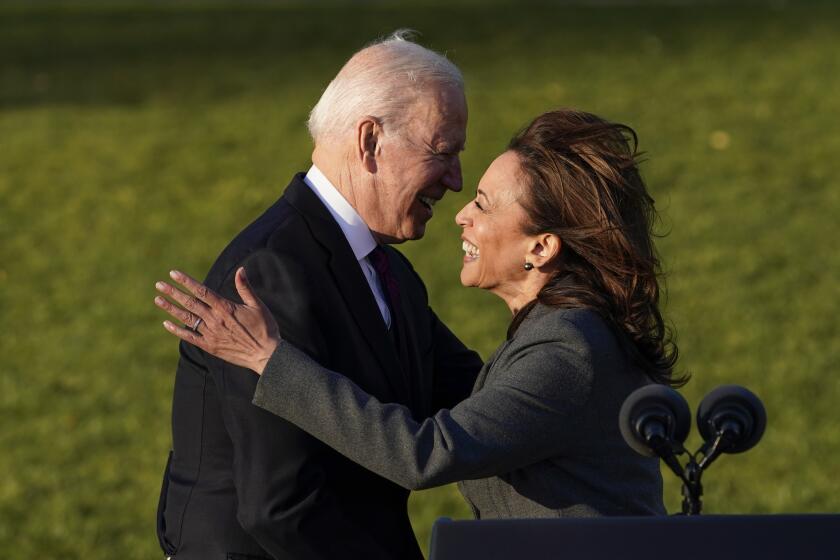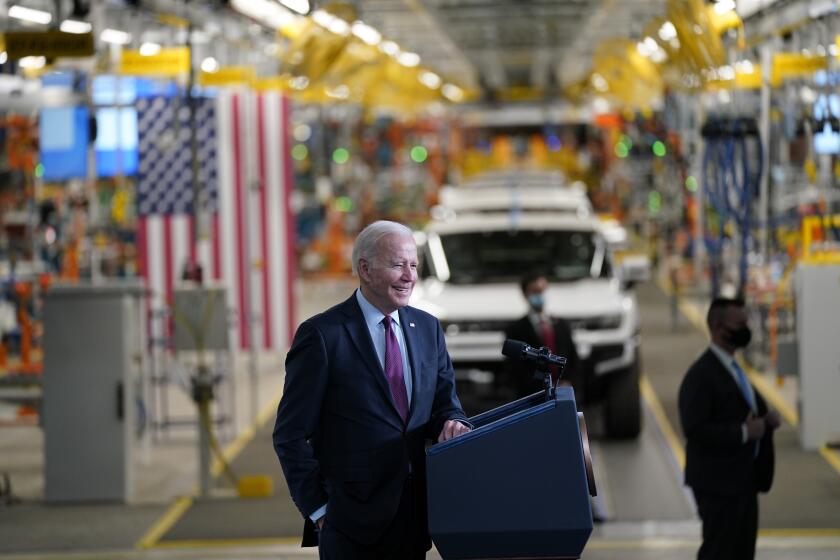Kamala Harris makes history, again, as first woman with presidential power — for 85 minutes

WASHINGTON — It was the colonoscopy that made history.
While President Biden went under anesthesia on Friday for the routine medical procedure, Vice President Kamala Harris assumed the powers of commander in chief.
It was the first time that someone who wasn’t a man served in that role, even temporarily. Biden ceded his authority to Harris from 7:10 a.m. Pacific to 8:35 a.m., and the White House said she spent the time working from her office in the West Wing.
Kamala Harris’ former status as a prohibitive favorite as the party choice to succeed President Biden has taken a hit amid criticism of her as vice president. But denying her the job could create problems for Democrats with two key constituencies — Black and female voters.
The transfer of power was a reminder of Harris’ standing as the first woman and the first person of color to be vice president.
“Has the glass ceiling shattered?” said Bakari Sellers, a political ally of Harris. “No, but it does have another crack.”
The moment provided a glimpse of a future that has so far proved elusive for American women. Several have run for the nation’s highest office — Hillary Clinton, of course, came the closest — but none has succeeded.
Harris herself sought the Democratic presidential nomination before dropping out early in last year’s primary. Biden chose her as his vice president shortly before accepting the nomination himself.
White House Press Secretary Jen Psaki said Biden knew he was “making history that was long overdue” when selecting Harris, adding that he chose her because she was ready to “step in if there was a reason to.”
“We make history every time they’re working together, every time she’s out there speaking on behalf of the government as the vice president of the United States,” Psaki told reporters at Friday’s briefing. “But certainly today was another chapter in that history.”
President Biden launched his administration’s hyperlocal goodwill tour for the infrastructure law on Tuesday.
Once Biden was no longer under anesthesia, Harris left the White House for a trip to Columbus, Ohio, where she visited a union headquarters as part of the administration’s efforts to promote its infrastructure legislation.
Harris has drawn outsized attention not only because of her historic status, but because of Biden’s age. He is the oldest person to be sworn in as president, and he turns 79 on Saturday.
Biden received the colonoscopy during what the White House described as his regular medical examination. He said he had a “great physical” when he walked out of the Walter Reed National Military Medical Center to return to the White House.
A medical report released by the White House said the results of the colonoscopy were “reassuring.” It also said the president’s movements are “perceptibly stiffer and less fluid” than in the past, and an examination determined that the stiffness is the result of “wear and tear” over the years.
The report concluded that Biden “is fit to successfully execute the duties of the presidency.”
The transfer of power was handled under Section 3 of the 25th Amendment to the U.S. Constitution, which allows the president to voluntarily transfer authority to the vice president.

It’s not an unusual step. President George W. Bush had colonoscopies in 2002 and 2007, placing Vice President Dick Cheney temporarily in charge.
When President Reagan had colon surgery in 1985, he ceded authority to Vice President George H.W. Bush.
Andra Gillespie, a scholar in African American politics at Emory University, said she hoped Harris’ moment “helps normalize the idea” of a woman serving in positions of power.
“This moment is important not because it gets a lot of attention, or will be pivotal in the life of country,” she said. “But it helps us to grow accustomed to seeing women in this position.”
People should know that “business goes on as usual” with a woman in charge, she said.
“Time is not going to stop while the president gets his colon checked out,” Gillespie said. “We are all going to be OK.”
Sellers had another way to sum up the day.
“It’s a really dope experience,” he said.
Times staff writer Evan Halper contributed to this report.
More to Read
Get the L.A. Times Politics newsletter
Deeply reported insights into legislation, politics and policy from Sacramento, Washington and beyond. In your inbox three times per week.
You may occasionally receive promotional content from the Los Angeles Times.













